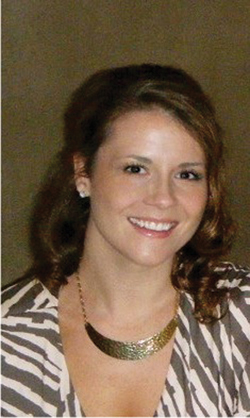Understanding the Faked Orgasm
 The orgasm—yes, the orgasm—plays an important role in our lives and helped shape the development of the species. It's best not to leave everything we know about it to bar talk and magazines.
The orgasm—yes, the orgasm—plays an important role in our lives and helped shape the development of the species. It's best not to leave everything we know about it to bar talk and magazines.Erin Billie Cooper '04 has ushered the orgasm into the realm of science with her study, begun at Kenyon, of heterosexual women who occasionally fake it. “Studies have found that between 50 and 68 percent of women have faked an orgasm at some point in their lives, but until I started my research, we never knew why. All the evidence was anecdotal,” said Cooper, a fourth-year graduate student in clinical psychology at Temple University.
Cooper developed an assessment measure that unveils motives behind the behavior. She used it to survey 481 women between the ages of eighteen and thirty-two who endorsed faking orgasms. “The common assumption is that women do this to protect the man's ego because they don't experience a real orgasm, but women fake orgasms for a variety of reasons.”
One motive is indeed to protect a partner's feelings. But others include insecurity about sexual functioning and the desire to end the sex act quickly. Some women fake orgasm to enhance their sexual experience. “These women are never talked about. They are taking control of their sensuality and ensuring that they have a good time. Faking orgasm can make sex more fun and exciting for them; it has little to do with their partner.”
Cooper's research, which has attracted national attention in the popular media, originated with girl-talk over lunch during her senior year in Gambier. “I was looking for an independent study idea and this came up as a bunch of girls were sitting around in Peirce Hall,” recalled Cooper, who is originally from northern Kentucky. “I think the conversation was triggered by a Cosmopolitan article.”
Being the good psychology student, Cooper searched the literature and was surprised to find just two articles in peer-reviewed journals about the practice. Under the tutelage of Professor of Psychology Allan Fenigstein, she began collecting data from Kenyon female undergraduates and developing her questionnaire.
Presentations at professional conferences since 2007 have sparked a firestorm of interview requests and reports in newspapers, magazines, and Web sites. “I wonder every day if this is good for my career,” said Cooper, who hopes to continue her research in an academic or clinical career. “Most graduate students are not yet respected enough in their field to be contacted for interviews, so this has been great attention for my work. But I have some concern that it will not be taken as seriously as it should due to the interest shown by the popular press.”
When people ask Cooper what she studies, she typically smiles in anticipation of their response to her answer. “I know they are going to react with shock, horror, or fascination, but for the most part people are interested, especially women. The practice is common, so there is good reason to study it.”
Her work, which she hopes to publish soon, advances knowledge about human sexual behavior and can better inform therapy for individuals and couples. It even has implications for men. “They can use my research as an ice-breaker for having an open and honest conversation with their partners,” Cooper said.
—Dennis Fiely

 Delicious
Delicious Facebook
Facebook StumbleUpon
StumbleUpon Digg
Digg reddit
reddit